South Korea continues to captivate travellers with its blend of cutting-edge technology, natural beauty, and rich history. For 2025, a handful of exciting new attractions open their doors, while many undiscovered corners await exploration. Even if you’re a seasoned South Korea explorer, you’ll find new, intriguing things to do in this list.
Also read: How to Travel Around South Korea by Intercity Bus: A First-Timer’s Guide
New openings and reopenings for 2025
Seoul Photography Museum: Opened 29 May
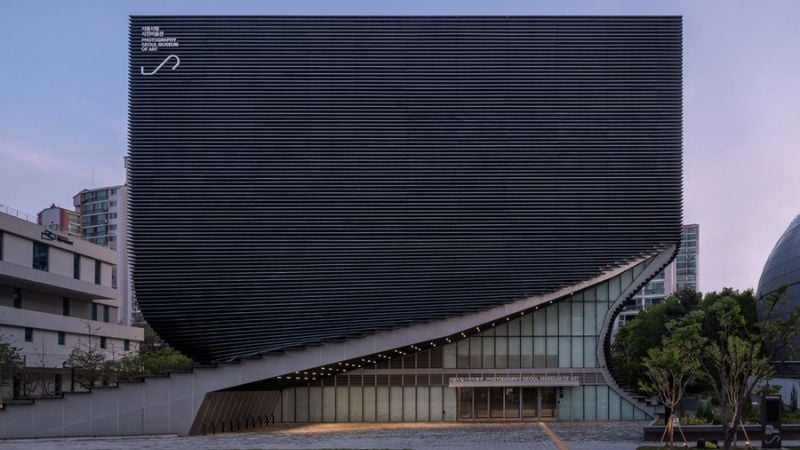
Image credit: Seoul Museum of Art Official Website
Seoul welcomes its first public museum dedicated exclusively to photography in Dobong-gu, SeMA Museum of Photography. This innovative space houses over 20,000 images and showcases Korea’s vibrant photo culture through engaging exhibitions.
A must-visit for art and photography lovers seeking fresh perspectives on Korean creativity!
Sinsundae Trail, Mt Geumgang (Gangwon-do): Reopened 16 May
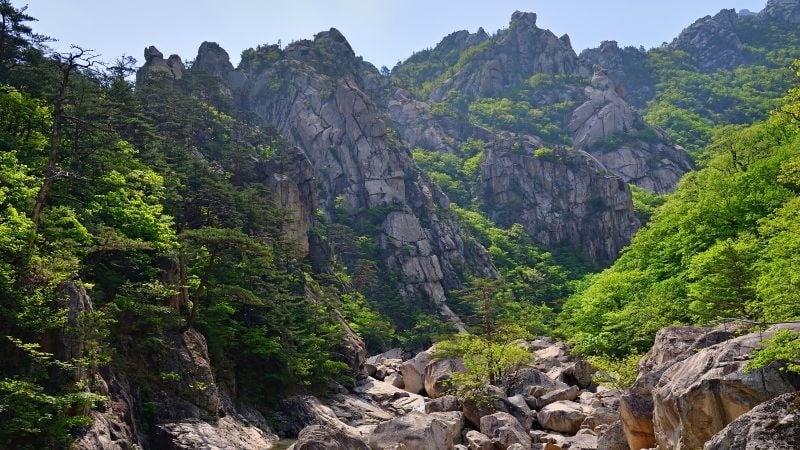
Image credit: znm via Canva Pro
This breathtaking hiking trail in Gangwon Province has officially reopened following its annual spring closure for forest fire prevention. It is a dramatic cliffside route offering sweeping views of the East Sea and surrounding ridgelines, with highlights including Ulsanbawi Rock and jagged granite outcrops.
The round-trip trail is beginner-friendly, spanning roughly 5.5 km and taking around three hours to complete. Perfect for nature lovers wanting a new accessible but dramatic outdoor adventure!
Seoul Outdoor Library: Reopened in April
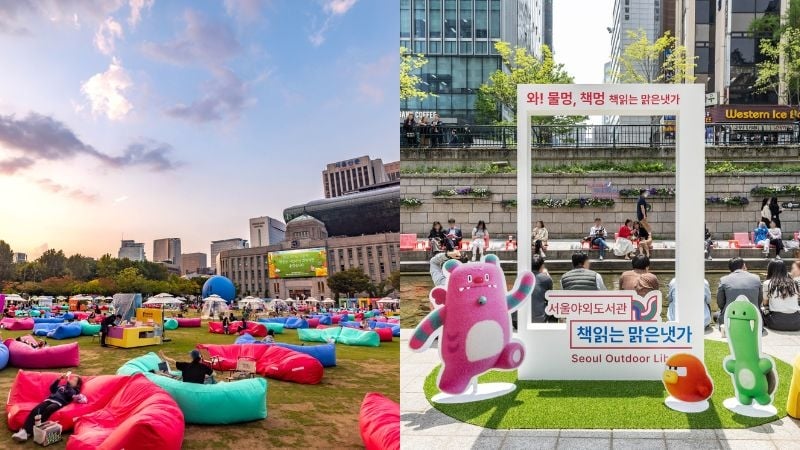
Image credit (L-R): Seoul Korea Official Facebook
Seoul’s unique outdoor library returns in 2025 with an expanded and vibrant programme across three iconic city locations: Gwanghwamun Square, Cheonggyecheon Stream, and Seoul Plaza.
Operating primarily on weekends from April to June and September to November, this open-air literary haven offers an impressive collection of books in multiple languages, including Korean, English, Chinese, and Japanese.
Visitors can also enjoy engaging cultural events such as film screenings, live music performances, author talks, and thematic reading clubs.
Floating museum on Anjwa Island: Projected to open in 2025
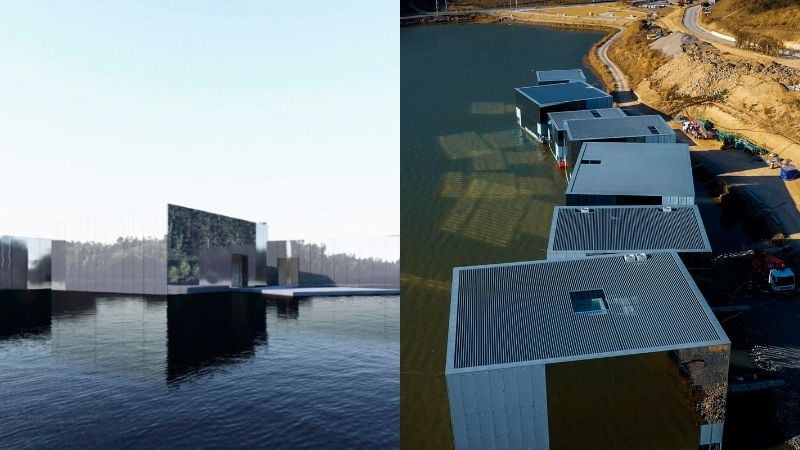
Image credit (L-R): Yanagi Artbase Official Website
Set to open in summer 2025 on the tranquil reservoir of Anjwa Island, the Floating Museum will be an extraordinary art space composed of seven mirrored cube-shaped galleries that appear to float effortlessly on the water.
This innovative project is part of the “One Island, One Museum” initiative, aimed at fostering cultural development through site-specific art experiences.
The museum’s reflective surfaces are designed to harmonise with the surrounding landscape, creating a seamless dialogue between contemporary art and nature.
Undiscovered and underrated spots worth exploring
Goseong Dinosaur Museum & Fossil Site, Gangwon-do
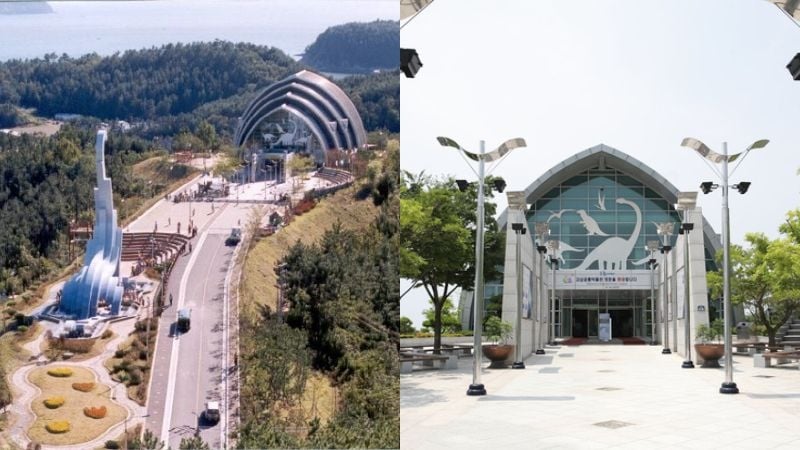
Image credit (L-R): Visit Korea Official Website
Ideal for families and anyone fascinated by natural history, the Goseong Dinosaur Museum is uniquely positioned beside one of the world’s richest dinosaur footprint fossil sites.
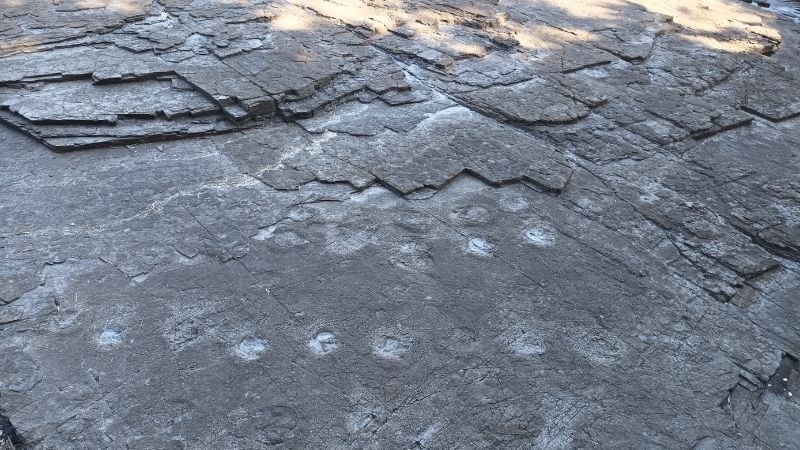
Image credit: Dittwjfsdgkvkdjg | Wikimedia
These ancient tracks date back more than 100 million years and include the largest known dinosaur footprint in East Asia. The museum itself offers five themed exhibition halls, complete with theatres, life-sized models and fossil displays, while downstream hiking trails allow visitors to walk among the real footprints set in coastal rock.
Jeongdongjin Beach, Gangwon-do
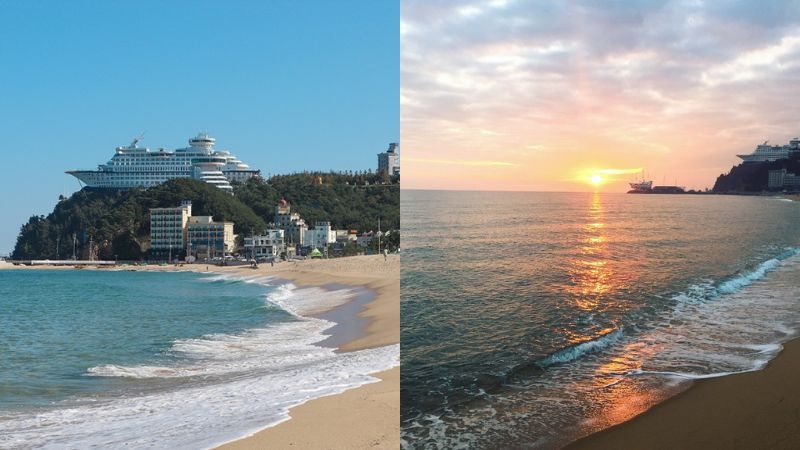
Image credit (L-R): Visit Korea Official Website; Sda516 | Wikimedia
Known among locals for some of the most stunning sunrises in the country, Jeongdongjin Beach offers a tranquil escape far from the hustle of more popular seaside destinations like Busan.
The soft sandy shore stretches beside the East Sea, where the golden sun rises spectacularly over calm waters. Beyond its natural beauty, the area is famed for its unique coastal rail bike experience.
There are also other interesting attractions to visit in the area; the nearby Jeongdongjin Time Museum adds a quirky touch with its clock-themed exhibits.
Hahoe Folk Village, Andong
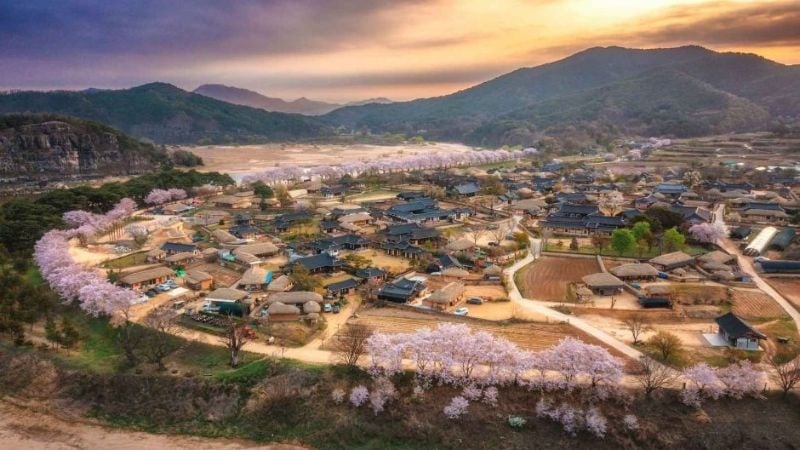
Image credit: Visit Korea Official Website
A UNESCO World Heritage site, Hahoe Folk Village is an exceptional glimpse into Korea’s Joseon Dynasty era. The village retains dozens of traditional hanok houses with distinctive thatched and tiled roofs, arranged harmoniously along the Nakdong River.
Visitors can personally witness age-old customs brought to life through captivating mask dance dramas performed regularly during festivals and weekends. This living museum offers a culturally immersive experience like no other.
Suncheon Bay Wetland Reserve, Jeollanam-do
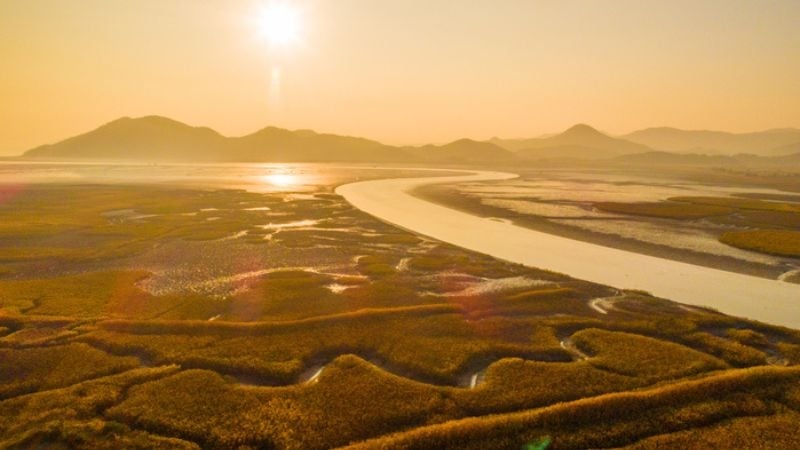
Image credit: Visit Korea Official Website
A UNESCO-designated wetland, Suncheon Bay is one of the country’s most important ecological habitats. Its vast reed fields, mudflats, and salt marshes attract numerous migratory birds, including endangered species like the hooded crane.
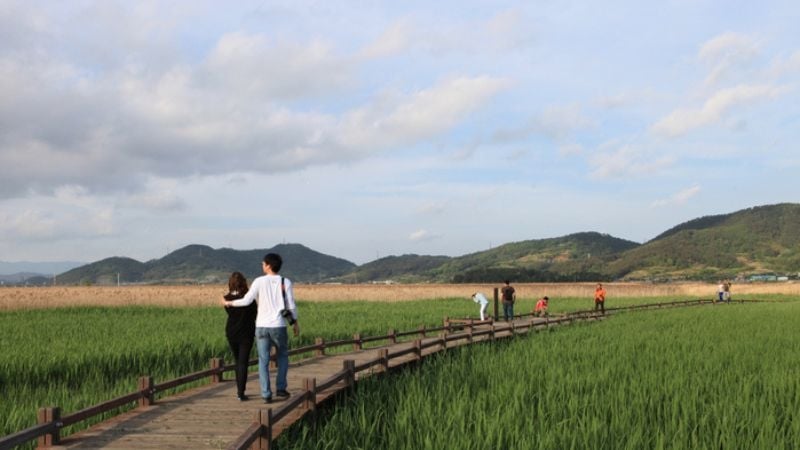
Image credit: Visit Korea Official Website
Visitors can stroll along well-maintained wooden boardwalks that weave through the wetlands, providing up-close views of flora and fauna without disturbing the environment.
The Suncheon Bay National Garden nearby showcases themed gardens and eco-friendly landscaping, making the area a serene getaway for photographers, bird watchers, and nature enthusiasts.
Also read: Nature Detour: 9 Stunning Natural Attractions to Visit in South Korea
Gangjin Celadon Museum & Kilns, Jeollanam-do
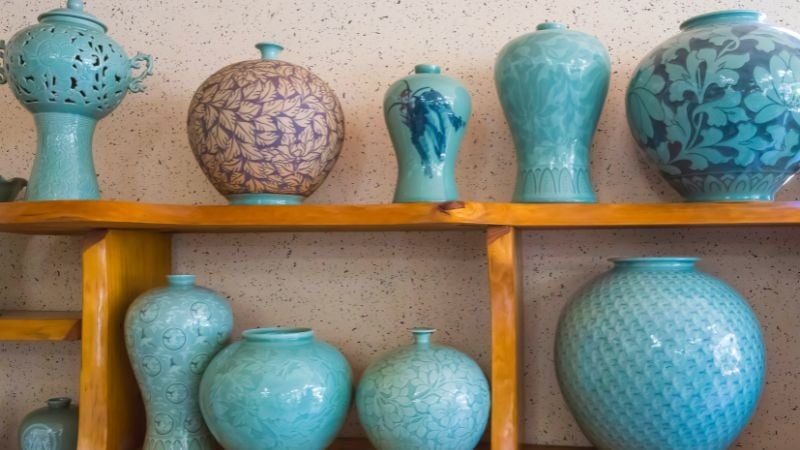
Image credit: sueuy song via Canva Pro
Gangjin is the cradle of Korea’s celebrated celadon pottery tradition, and this museum immerses visitors in the art form’s exquisite history.
Visitors can participate in hands-on pottery workshops, learning the ancient techniques of shaping, glazing, and firing. Nearby kiln ruins and pottery villages offer insight into the traditional craft’s production processes.
Boseong Green Tea Fields, Jeollanam-do
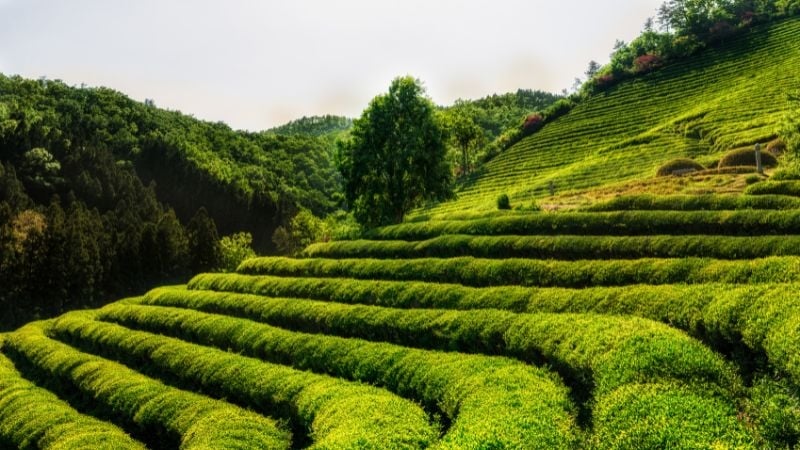
Image credit: aaron90311 via Canva Pro
Boseong, Korea’s premier tea-growing region, is famous for its sweeping green tea plantations that carpet the rolling hills in vivid emerald.
Visitors can wander through the neatly terraced fields, stop by tea houses to sample fresh green tea and matcha-based treats, and enjoy panoramic views over the fields and distant mountains.
Incheon Open Port Area
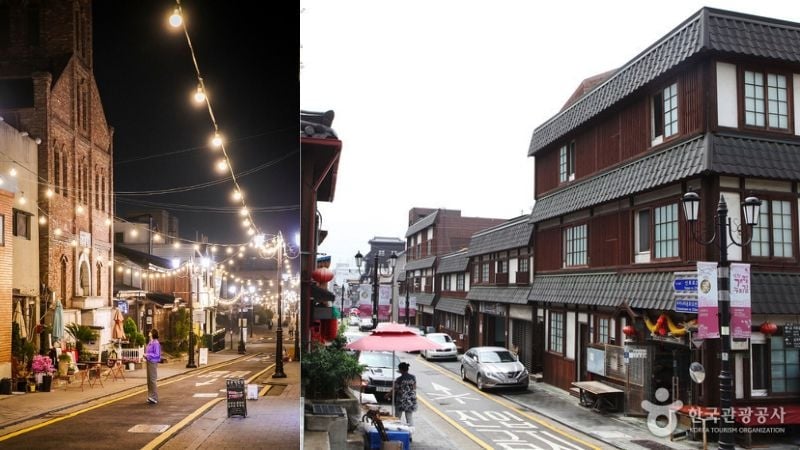
Image credit (L-R): Visit Korea Official Website
Incheon’s Open Port Area tells the story of Korea’s first modern port opened to international trade in 1883. The district features colonial-era architecture, quaint cafes, and museums that explore Korea’s opening to the world.
Visitors can stroll along the old waterfront, visit the Incheon Art Platform cultural complex, and explore the eclectic blend of Korean and foreign influences.
Dongpirang Village, Tongyeong
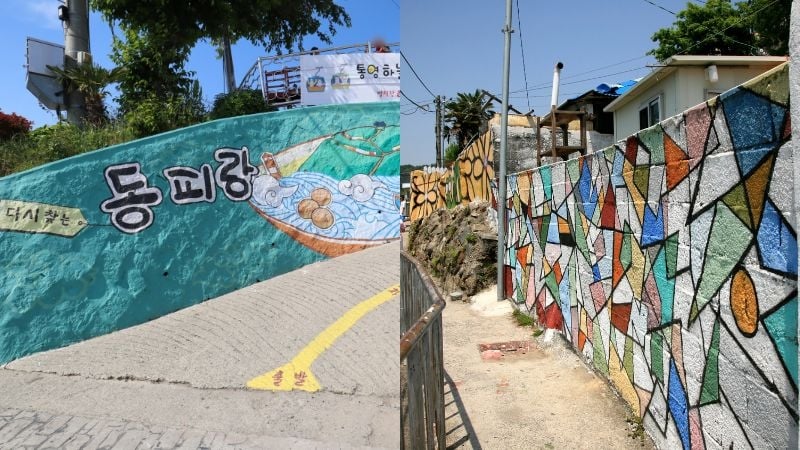
Image credit (L-R): Mobius6 | Wikimedia; Junho Jung | Wikimedia
This hillside village in the coastal city of Tongyeong is a hidden gem of colourful murals, mosaic stairways, and local crafts.
Often compared to Santorini for its ocean views and vibrant art, Dongpirang offers an intimate, creative atmosphere with galleries, cafés, and traditional markets. It’s an excellent spot for street art lovers and those seeking a relaxed seaside cultural experience.
Also read: Everything That Went Wrong During My First Trip to South Korea
Time for a revisit
This year presents a unique opportunity to explore newly opened cultural landmarks and revisit reopened natural trails, alongside uncovering South Korea’s undiscovered gems.
From immersive art museums to ancient villages and tranquil nature reserves, these destinations offer something for every traveller’s interest. Even if it’s your fifth visit, 2025 promises a fresh perspective on South Korea’s multifaceted charms.




